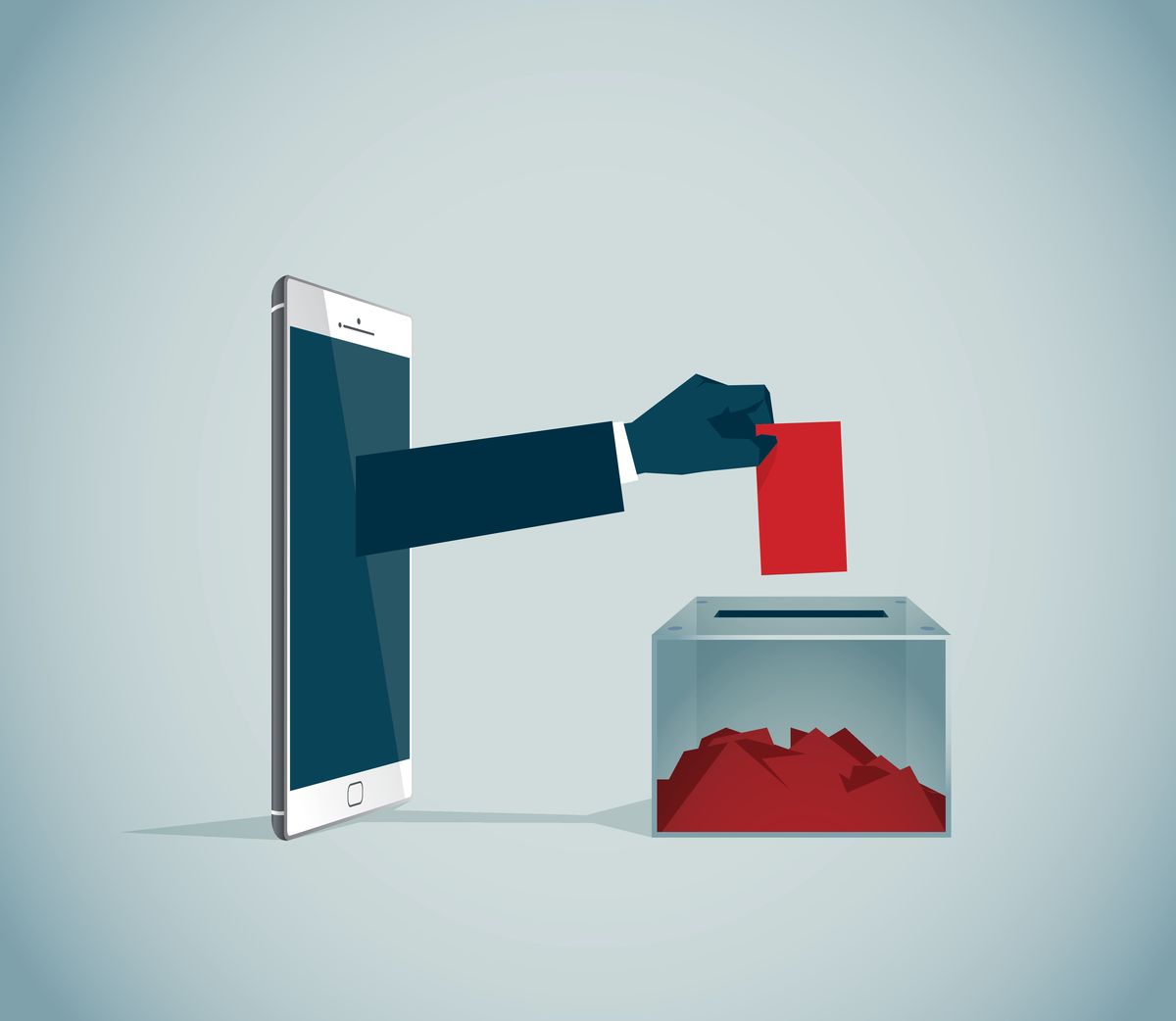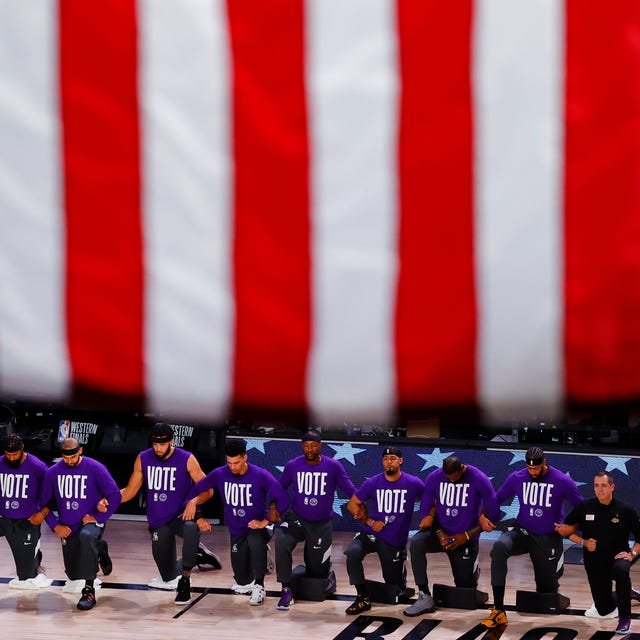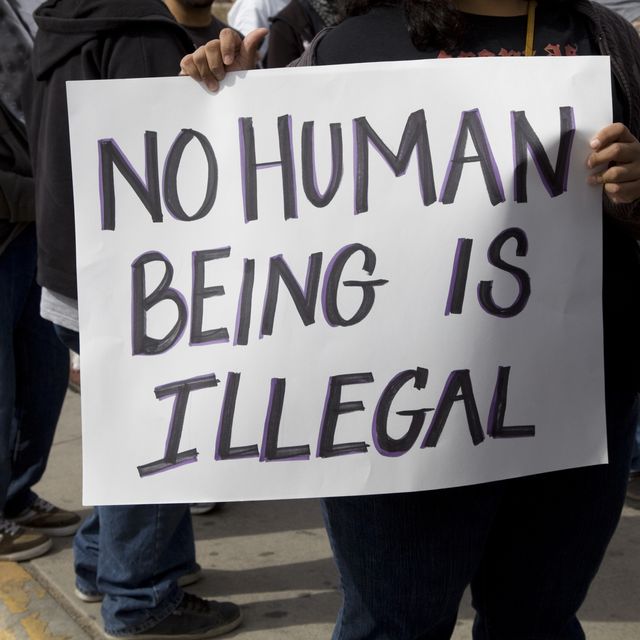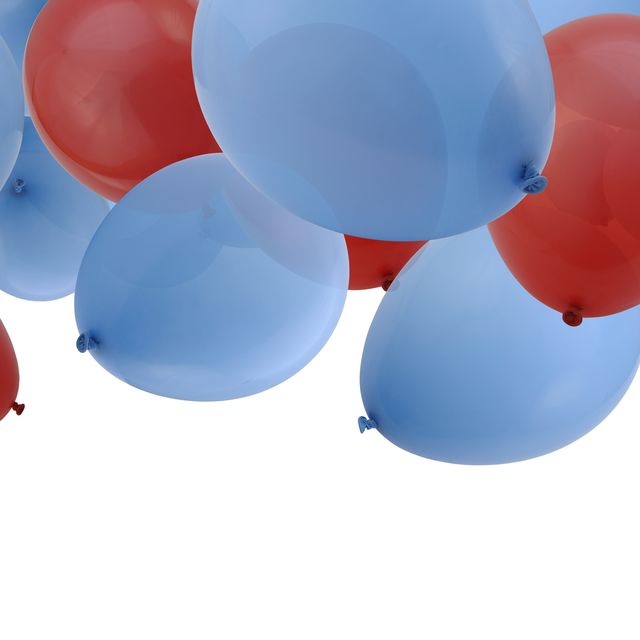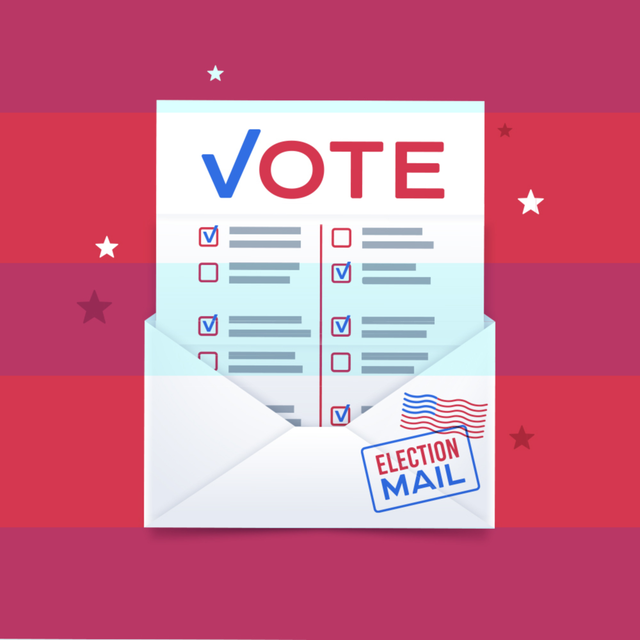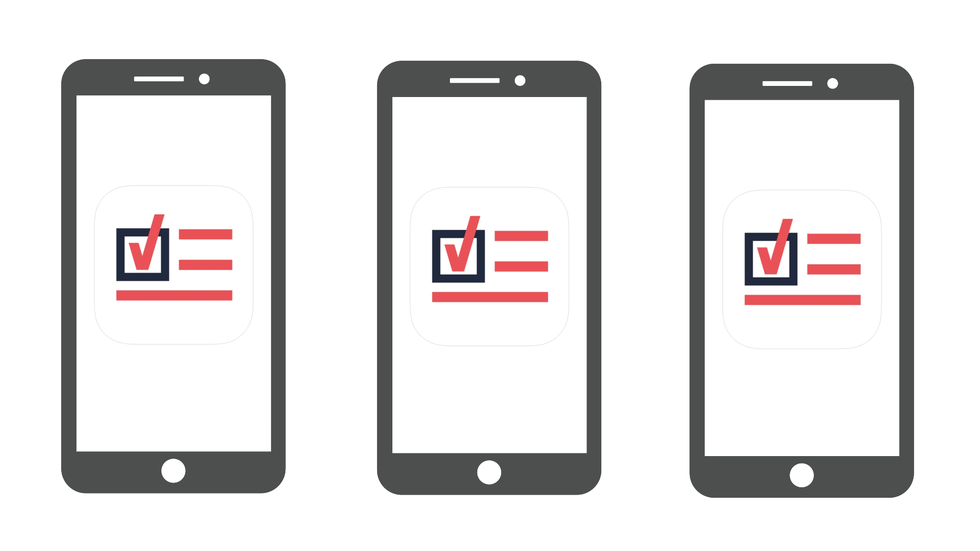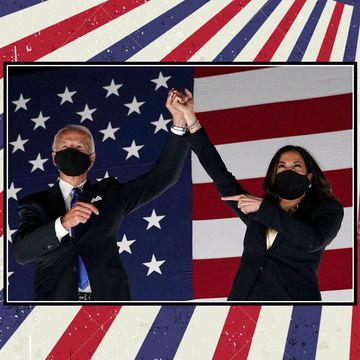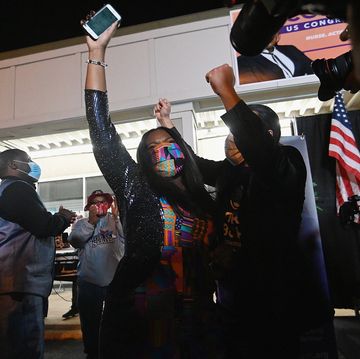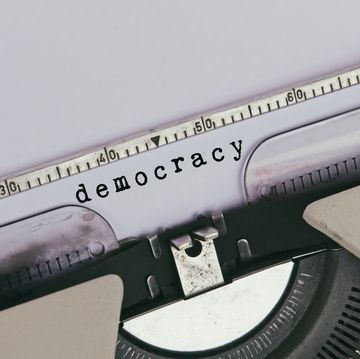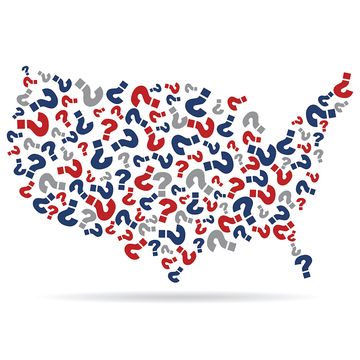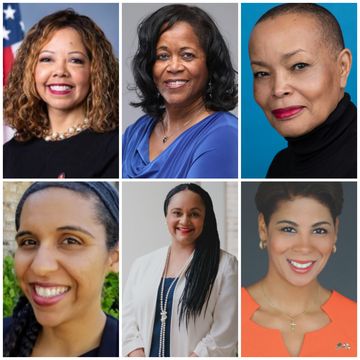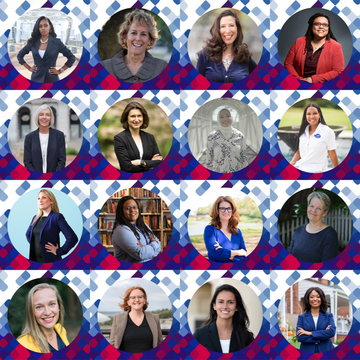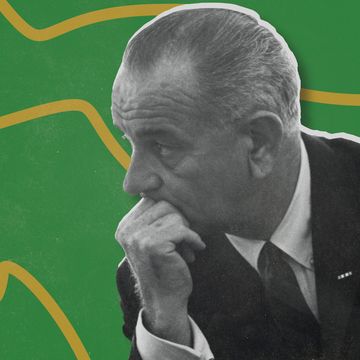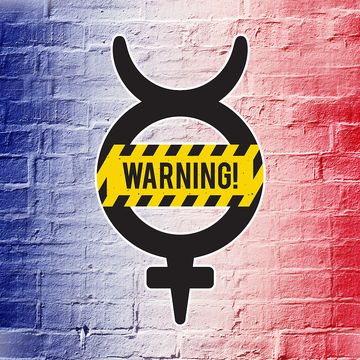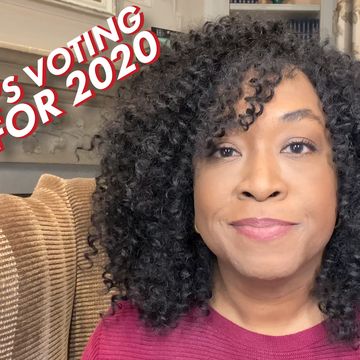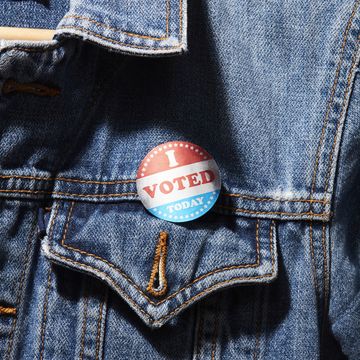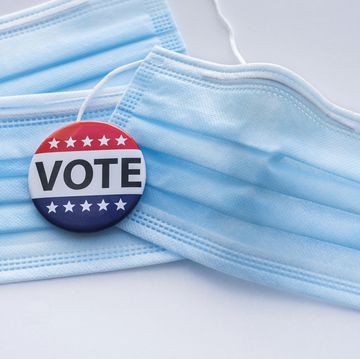It's no secret we live in divisive times, but we’re most interested in how we move forward as a country and discovering the best ideas that will define our collective future. We've promoted the importance of voting all year — and now it's time for you to get your own voting plan in order. With the presidential election fast approaching on November 3, 2020, be sure to check your voter registration here, courtesy of When We All Vote.
Shondaland understands that the 2020 election is one of the most important in the history of America. So we’ve decided to publish some inspiring stories about the upcoming US election. Our hope? To get and keep you fired up enough to vote on Election Day.
Recommendations from friends tend to resonate more strongly than those from strangers. Whether it’s an up-and-coming brunch spot, a little-known vacation destination, or a car mechanic who won’t rip you off, getting that personal referral just goes a long way. It helps to cut through the noise and make sense of the options available to you.
But when it comes to political elections and advocacy work, does the same approach apply? As it turns out, yes. And it even has a name.
“We’ve seen an emergence of technology to do what’s called relational organizing, and that’s something we’ve really leaned into for these last two election cycles,” says Emily DaSilva, chief operating officer at Outvote, a voter outreach platform that's tapping into technology to increase election turnout. “Relational organizing is more or less the oldest form of organizing in the book, which is calling your friends to get involved in something. But in the last couple of years, technology has really emerged to help facilitate friend-to-friend organizing.”
Countdown to the Election
On Outvote’s platform, users can connect to causes and campaigns that they’re passionate about and more easily include their friends in that work.
“It’s everything from texting your friends to sharing content on your social media, helping to circulate petitions and pledges, making grassroots donations across friend groups,” DaSilva explains. “Also, making sure your friends are registered to vote and prepared to vote, whether it’s voting in person, early, or by mail or absentee.”
Users can sync their contacts with the national voter file — which has public information about voting history, for example — and connect with campaigns to complete digital actions, like sending texts. Some campaigns will provide templated texts so users don’t have to bumble their way through talking about voter registration. These send from your own number and appear as regular texts to your friends and contacts.
To date, leading up to the November 3 general election, Outvote users have sent more than 100 million texts. “It’s a lot,” DaSilva says. “But the best way to reach someone with a message they will trust is through someone they know and trust, and that’s their friends or their immediate community. If you have the ability to reach someone you know, they’re more likely to believe it and act upon it.”
Outvote currently works with hundreds of political campaigns and advocacy groups, including Planned Parenthood, When We All Vote, Move On, Community Action Change, Greenpeace, and HeadCount. Its work has proved to be especially effective and necessary in 2020, not just because it’s a critical election year, but because the coronavirus pandemic has halted so much of traditional organizing efforts.
“This year has put so many of us behind and has presented a lot of challenges,” DaSilva says. “We have not had an opportunity to do usual field organizing efforts like in-person door knocking, canvassing, rallying, and fundraisig for causes that we’re passionate about.”
The pandemic, DaSilva explains, has forced people to rethink what outreach and mobilization looks like. But it’s not the only reason they are turning to tools like Outvote and relational organizing.
“Of course it’s partly because of the pandemic, but it’s also due to social and societal trends we’ve seen,” she says. “There’s an increase in folks’ dependence on and creative use of technology for mobilizing for change. In this election cycle particularly, technology has been most helpful with the rapid spread of trusted information. People have gone as far as to help their friends get registered to vote, request their mail-in ballots, and follow up to make sure they sent in the information to the state board of elections and secretary of state’s office.”
On National Voter Registration Day in September, for instance, Outvote registered more than 30,000 new voters — yes, in a single day.
And so far, four states — Georgia, Texas, Ohio, and Illinois — have set early voting records, far outpacing early voter turnout in 2016. Yet while voting is a key part of the outreach picture, it’s certainly not the only part.
“Not everyone who uses Outvote is an eligible voter,” DaSilva shares. “People are not eligible because of immigration status, age, or other reasons, so it’s important for us to build a community of people who can be involved in civic engagement, even if voting is not the only option.”
The platform also isn’t in the business of making folks feel bad for voting or rallying behind causes for the first time. In fact, it’s very intentional about targeting exactly those types of individuals who just might not know where to start or are feeling overwhelmed by, say, the voter registration process.
And who can blame them? With voter suppression tactics on the rise, it’s understandable that some people would feel discouraged about getting involved.
“We do not shame, and I feel very strongly about that,” DaSilva says. “We’re a friendly nudge to help guide friends to recognize, ‘Uh-oh, maybe my friend isn’t registered to vote and they don’t know that.’ Or maybe they need a friendly hand to help them go through the process.”
One of Outvote’s features is a team function that enables users to create teams of friends that can rally together digitally, whether it’s RSVPing to a local Black Lives Matter protest or tuning into a live event hosted by one of the advocacy groups it works with.
Does relational organizing have the potential to decide an election? Well, it already has: In 2018, tools like Outvote helped flip the House of Representatives, and gave many political newcomers an advantage over incumbents. DaSilva says it all comes back to that tangible, person-to-person connection that makes folks feel heard.
“We ran a study with Columbia University recently that showed a voter who received a text from a friend using Outvote was just under 10 percent more likely to turn out to vote than if they didn’t receive a text from a friend,” she shares. “That can be the difference between an entirely different candidate winning in a district or a ballot measure that protects your right to healthcare or your right to marry who you love. So that almost 10 percent is huge.”
Politics has always been a numbers game. But now, thanks to technology, people who have traditionally been left on the sidelines are seizing the opportunity to have some playing time.
“There’s such strength in numbers,” DaSilva says. “If technology can be the great unifier within movements to make change, then I am honored to be behind the scenes cranking the wheels with technology to make the change we want to see.”
Mekita Rivas is a Washington, D.C. based writer and editor. She primarily covers style, culture, and politics. In addition to Shondaland, her writing has been published in The Washington Post, Wine Enthusiast, Glamour, Brides, Refinery29, and others. Follow her on Twitter @MekitaRivas.
Get Shondaland directly in your inbox: SUBSCRIBE TODAY
